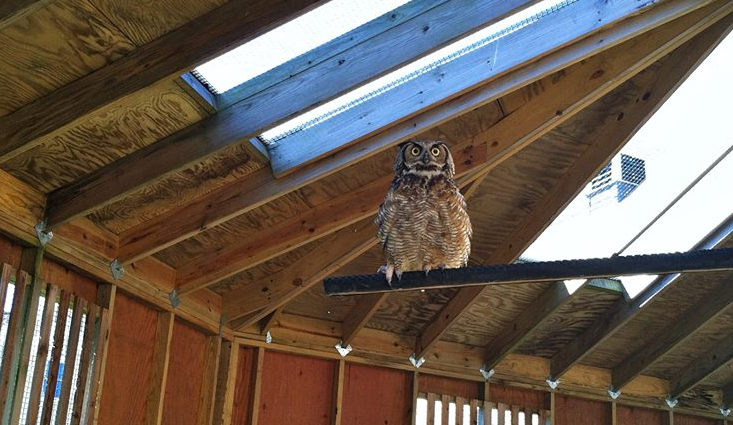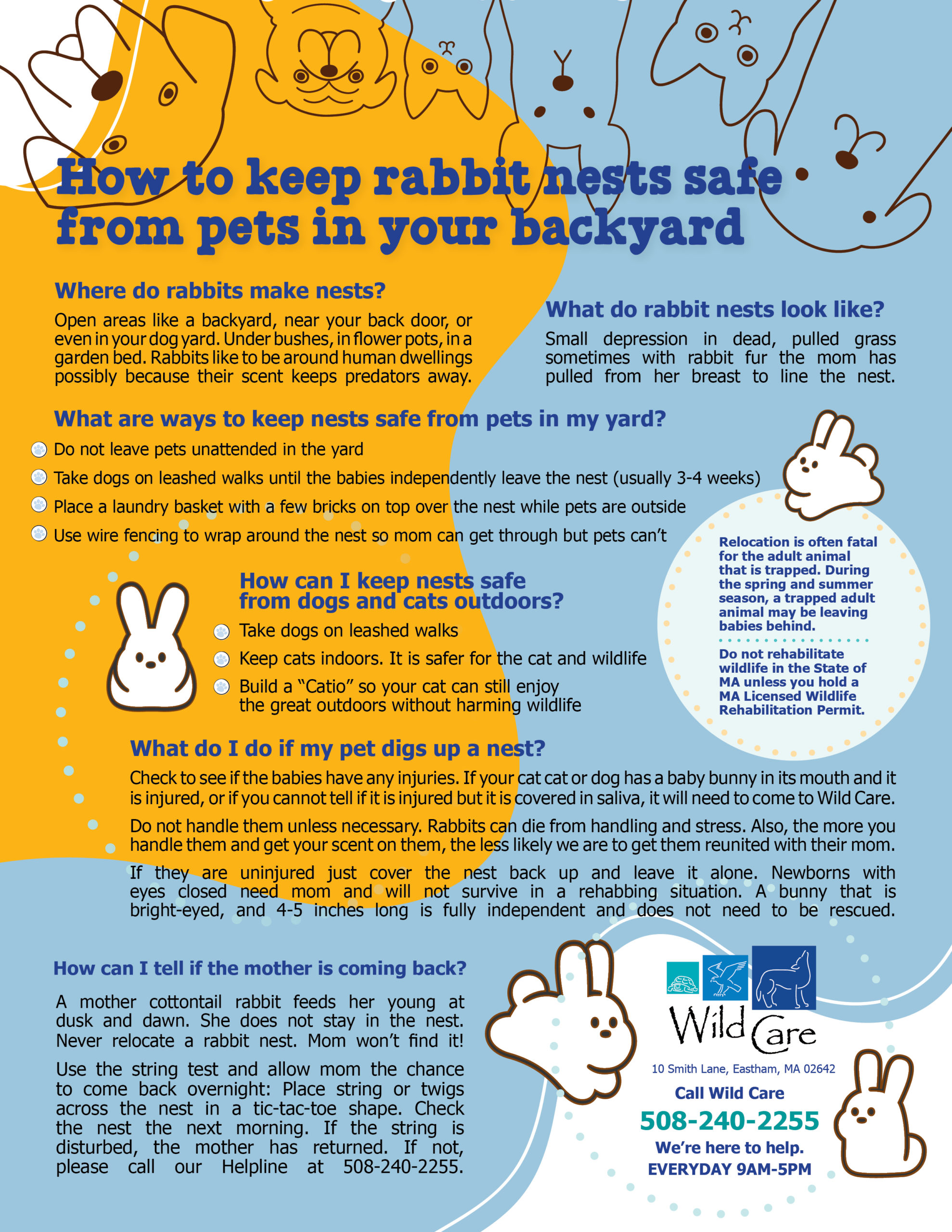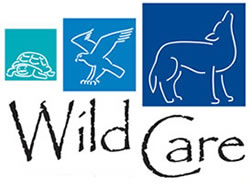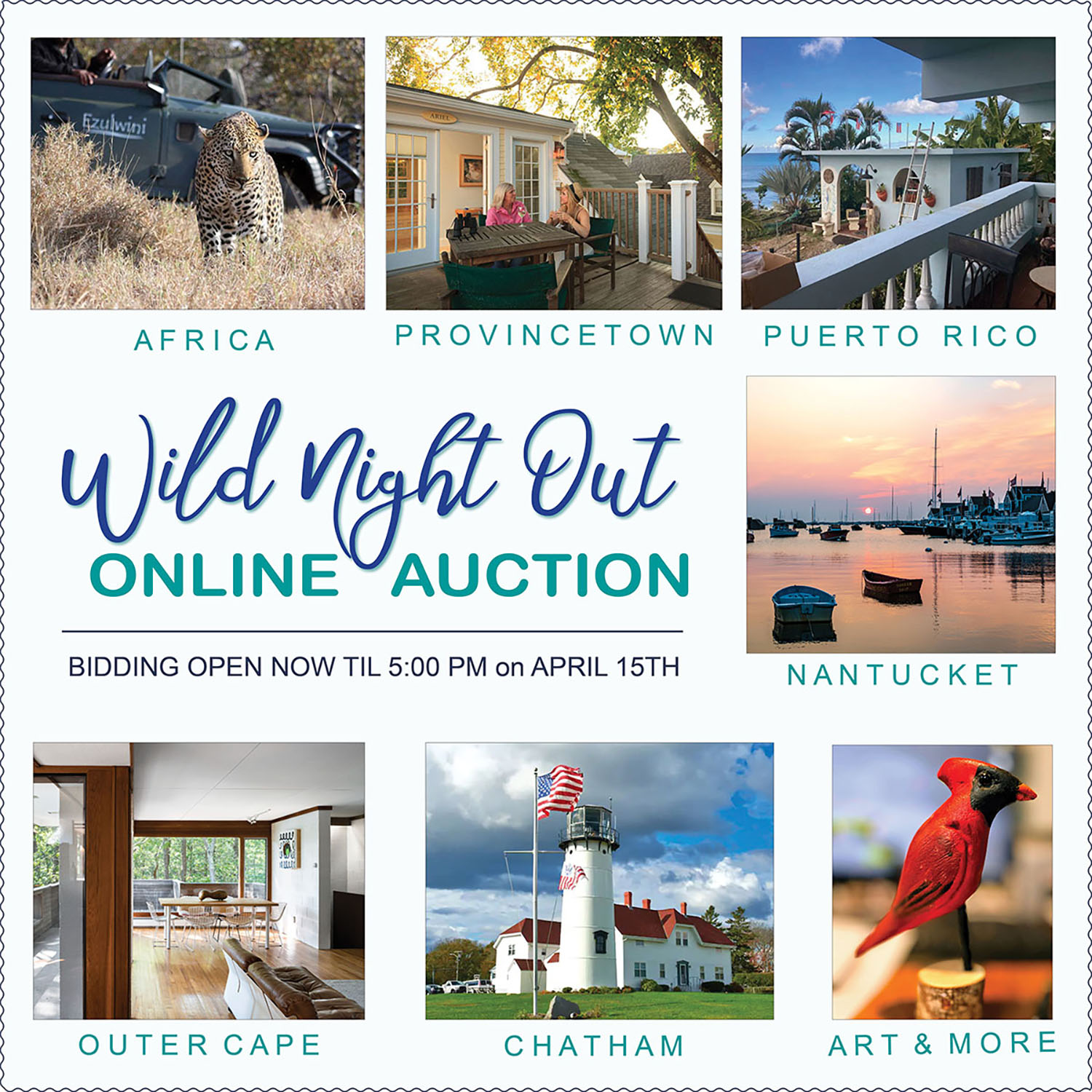
Wildlife Helpline
So you have discovered a wild animal that looks to be in trouble? Here are some guidelines for the best way to assist them and when to contact Wild Care on our Wildlife Helpline 508-240-2255.
For the most part, it is easy to gauge when an adult animal may need help from a rehabilitator. However being on Cape Cod means you may see lots of sea birds, and they require more guidance and counsel.
If you observe and can approach a sea bird (cormorants, gannets, loons etc..) on the beach, it is most likely compromised, because with the exception of gulls, they don’t tend to come to land. Call Wild Care immediately because they can be dangerous to humans. Don’t try to rescue the bird on your own – we can coach you over the phone and answer questions about what type of bird you have encountered.
When it comes to wildlife infants, deciding whether or not to interfere on their behalf is not so easy. Here are some tips to help you recognize when they need help.
Infant Songbirds
Download our brochure (pdf): “Help! I Found A Baby Bird.”
During baby bird season, it is normal to see young birds on the ground, apparently unable to fly. Often the size of adults, but possibly with shorter tail feathers, these are fledglings. Fledglings have fully developed legs, and are able to hop and jump but are still flightless. Sometimes they will open their mouths when approached by humans. Do not feed or handle these birds. Generally mom or dad are very close by, and if you observe from an indoor vantage point for an hour or so, they will visit their fledglings.
If the bird is in immediate danger, it is ok to gently lift the bird onto a higher branch nearby, above the reach of cats or other predators. If a slightly younger bird (with feathers, eyes open) has fallen out of the nest and is not injured, if at all possible the bird should be placed back into its nest; mom will not be scared off by the “smell” of humans on the infant. This is a myth.
Naked birds (without feathers) require Wild Care’s help if found outside of their nest or if they feel cold to the touch. Any bird who has had contact with a pet or who has cuts or lacerations will need to come in to Wild Care for antibiotic treatment. If you find a fallen nest, please call immediately once you gather the babies; depending on the situation, it may be possible to relocate the nest. Remember… even if you cannot reach us overnight, do not offer food or water. Keep the bird(s) warm, dark, quiet and covered (such as in a shoe box) until you can reach Wild Care.
Ducklings, Goslings and Cygnets
Infant waterfowl often will be observed crossing roadways in line behind their mother. Occasionally, one or two chicks may be substantially smaller than the others.
Ducklings or goslings are prone to falling into storm drains and/or window wells. Chicks found stranded in a pit or drain should be removed and placed in a box. Once the entire group is collected, they will be accepted by the mother if presented as a group. Use the box of cheeping babies to lure mom away to a safer location nearby. Then release all the chicks at once. If the box is left out for more than an hour and mom has not come to investigate, place the box in a dark, warm, quiet room and contact Wild Care immediately. Infant waterfowl should never be placed in water without their mother. When an infant is discovered by itself, call Wild Care. Do not offer food or water.
Virginia Opposums
Opossums who are 8-10” in length are generally old enough to be on their own. They are typically observed at night scavenging at bird feeders or in garbage or recyclables. They are not predatory and are harmless. Opossums do “play dead” when frightened.
If you find a dead opossum in the road with babies in the pouch, do not remove the babies. Simply bring the entire animal to Wild Care. Babies can be injured when separated from the nipples, or mistakenly missed deep in the pouch. If you find an opossum with fleas, lacerations, that has had contact with your pet or is shorter than 8” in length, please contact Wild Care immediately. In the meantime, place the animal in a covered box and do not offer food or water.
Eastern Grey Squirrels and Red Squirrels
Shortly after young squirrels open their eyes, they begin venturing away from the nest. Young squirrels with fluffy tails have generally begun sampling solid food. Squirrels with tail fur still “flat” are predominantly nursing.
If a nested tree is cut down, but the babies feel warm and appear uninjured, place the nest including the youngsters in a box and leave it near the original nest site. If mom is alive, and curious onlookers are kept away, she will return and move her babies to a new location. Squirrels almost always have multiple “auxilary” nests. If the babies are found on the ground with their eyes closed, are unresponsive, have cuts, or are following you or your pet, they are not under the care of the mom. If mom has been killed or injured and cannot return to the nest, the babies often chew their way out of the nest to try to find her. After 2 or 3 days, they become cold, dehydrated, very weak, docile, and have fleas. They will not survive without medical attention from Wild Care. Place them in a covered box, in a dark warm quiet room, until you can reach us, and do not offer food or water. Baby squirrels are very cute, and on a regular basis people decide to try to raise them as pets; this is strongly not recommended (and is illegal). Once the rescuer has realized that adult squirrels can and will destroy their house, the imprinted squirrels are often turned over to rehabilitators with nutritional deficiencies and behavioral abnormalities.
Eastern Cottontail Rabbits
Cottontails will be found in a nest, a shallow hole with fur on top, left unattended by mom for up to 12-14 hours as a time. Moms only return to the nest at dusk and dawn to care for their babies. Bunnies the size of an apple are self-feeding, may venture from the nest, and also should never be touched. If you have good reason to believe the nest is abandoned, place two small sticks or blades of grass over the nest in an “X” pattern. Wait overnight. If the sticks or blades of grass have been moved by the next morning, the mom has returned to nurse. Infant cottontails are independent at three weeks of age.
Cottontails that have had any contact with a pet will require immediate medical treatment. Cat-inflicted injuries are fatal in the absence of antibiotics. Please place the bunny in a box and keep them warm, dark and quiet until you can reach us. Please do not hold, pet, or cuddle baby bunnies as they can die from this stress. Cut grass, lettuce, milk and other foods can be lethal to these delicate youngsters, so do not offer them food or water.
We’ve put together some useful information to help keep rabbit nests safe from pets in your backyard. Find out more about where rabbits make their nests and what they look like, and get suggestions for things you can do to help keep nests safe. Find out what can you do if your pet gets into a nest, and how to tell if the mother rabbit is coming back to the nest or if the babies are orphaned.

Wild Night Out Online Auction
READY, SET, BID… We are so excited to announce that our Wild Night Out Online Auction is now live!
READ ALL NEWS
CALENDAR OF EVENTS
04 April, 2024
Wild Night Out Online Auction
EVENT DETAILS
05 April, 2024
Wild Night Out
EVENT DETAILS
28 February, 2024
Wildlife Winter/Spring Talk Series
EVENT DETAILS

DID YOU KNOW??
Wild Care has a state-of-the-art seabird therapy pool, which allows seabirds and waterfowl to exercise on running water. This will help our bird friends recover more quickly so they can get back to their watery habitats!

